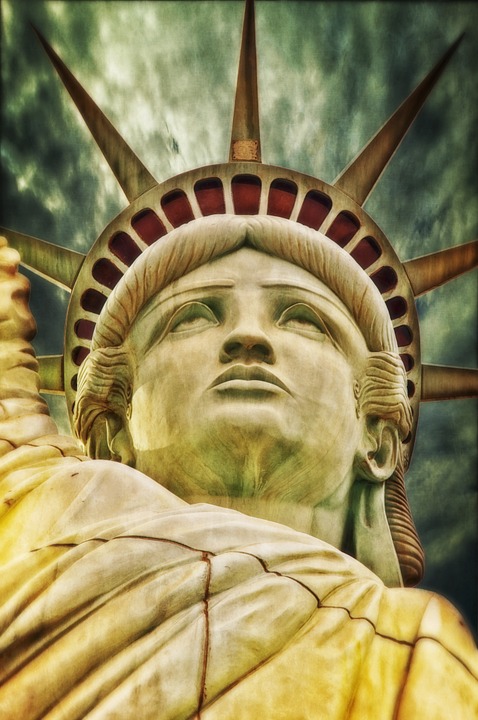
White House senior policy adviser Stephen Miller said he didn't want to delve into history --- and then he did for several heated, and at times berating, minutes at a White House briefing Wednesday.
And it wasn't just any lesson. It was one that struck at the core of one of the most visible symbols of America's identity: the Statue of Liberty.
Miller had been at the podium to discuss President Donald Trump's support of a bill that would reduce the flow of legal immigration into the country when he was asked a question by CNN's Jim Acosta, whom he would later call "ignorant" and "foolish."
Acosta asked whether that immigration stance stood counter to American tradition, noting the words immortalized on the base the Statue of Liberty: "Give me your tired, your poor, your huddled masses."
"I don't want to get off into a whole thing about history here," Miller said. "The poem that you're referring to you was added later. It is not actually part of the original Statue of Liberty."
It was a statement that may have made many American's pause, and not just for its dismissiveness. In the nation's collective memory, those words have always shared pages in history books with pictures of the torch-wielding giant. Without them, she seems to have no voice.
But Miller was right - if not in his tone, in his facts.
When Lady Liberty was unveiled in 1886, The Washington Post did not make mention of those words. They were not uttered at the ceremony to dedicate the statue and the author - Emma Lazarus - would not live long enough to see them inscribed on a plaque on the pedestal.
As Washington Post reporter Katie Mettler wrote earlier this year, Lazarus wrote the sonnet that would contain those famous words as a favor to help raise funds for the pedestal that would hold the expensive gift from France. Her sonnet, she was told, would be sold at an auction that would also feature works from Mark Twain and Walt Whitman.
Lazarus begrudgingly agreed, and composed the words that in recent months have been splashed on protest signs and on Twitter feeds as a symbol of American compassion.
But Lazarus would never see a hint of what was to come of her work, titled "The New Colossus." She died of cancer a year after the Statue of Liberty was dedicated and it wasn't until two decades later that the poet's words adorned a plaque affixed to the inner wall of the statue's pedestal.
So, Miller was right.
Miller subsequently sparred verbally with Acosta, with the exchange growing especially heated when Acosta asked about the requirement that immigrants know English before coming into the U.S, "Are we just going to bring in people from Great Britain and Australia?"
"I am shocked at your statement, that you think that only people from Great Britain and Australia would know English," Miller said. "It reveals your cosmopolitan bias to a shocking degree. . .That is one of the most outrageous, insulting, ignorant and foolish things you have ever said."
Here is the full poem that Lazarus wrote:
The New Colossus
Not like the brazen giant of Greek fame,
With conquering limbs astride from land to land;
Here at our sea-washed, sunset gates shall stand
A mighty woman with a torch, whose flame
Is the imprisoned lightning, and her name
Mother of Exiles. From her beacon-hand
Glows worldwide welcome; her mild eyes command
The air-bridged harbor that twin cities frame.
"Keep ancient lands, your storied pomp!" cries she
With silent lips. "Give me your tired, your poor,
Your huddled masses yearning to breathe free,
The wretched refuse of your teeming shore.
Send these, the homeless, tempest-tost to me,
I lift my lamp beside the golden door!"


 Contact The Editor
Contact The Editor
 Articles By This Author
Articles By This Author